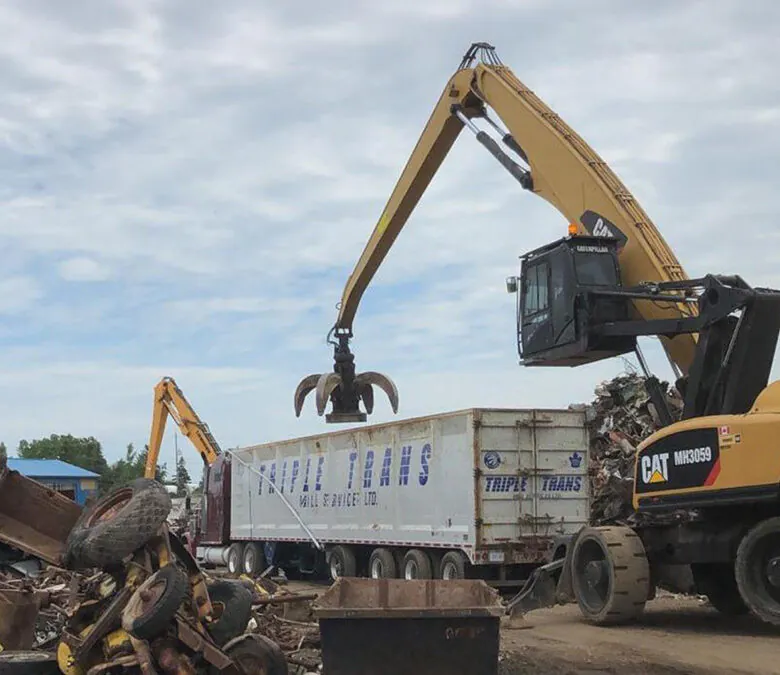Introduction
In the modern industrial landscape, the push towards sustainability is more than a trend; it’s a necessity. Scrap metal hauling, an essential link in the recycling chain, faces unique challenges and opportunities in its quest for eco-friendly operations. This detailed exploration sheds light on the most effective practices for reducing environmental impact while maintaining the efficiency of scrap metal transportation.
Minimizing Carbon Footprint
Fuel-Efficient and Alternative Fuel Vehicles: Transitioning to vehicles that either consume less fuel or utilize alternative energy sources is a significant step toward sustainability. Electric trucks, although in their infancy, represent a promising avenue for drastically reducing greenhouse gas emissions associated with diesel fuel.
Intelligent Route Optimization: Leveraging advanced GPS and routing software can transform operations, cutting down unnecessary mileage and idle time. This not only conserves fuel but also ensures that vehicles are running on the most efficient paths, reducing traffic congestion and its associated emissions.
Enhancing Load Efficiency
Strategic Load Maximization: It’s crucial to utilize the full capacity of each transport vehicle without exceeding legal weight limits. This practice minimizes the number of trips needed, directly cutting down fuel consumption and emissions. It requires careful planning and knowledge of the materials being hauled to achieve optimal density and distribution within the vehicle.
Innovative Compaction Techniques: By investing in technology that compacts or shreds scrap metal more effectively, companies can increase the amount of material transported per trip. This not only optimizes efficiency but also reduces the environmental footprint by needing fewer journeys to move the same amount of material.
Recycling and Waste Reduction
Eco-Friendly Packaging Solutions: The adoption of recyclable or reusable packaging materials for transporting scrap metal significantly reduces plastic and other waste. This commitment to circular economy principles extends the life of materials and minimizes the need for virgin resource extraction.
Efficient Waste Separation: Properly separating and disposing of non-metallic waste ensures that recyclable materials are not contaminated. This enhances the quality of the recycled metal and supports the overall efficiency of recycling operations.
Renewable Energy and Equipment
Adoption of Solar Power: Integrating solar panels into operational facilities can drastically reduce a company’s carbon footprint. Solar energy can power administrative offices, charging stations for electric vehicles, and even some aspects of the material handling equipment.
Regular Vehicle and Equipment Maintenance: Ensuring that all equipment is in optimal condition is key to maintaining efficiency. Well-maintained vehicles not only consume less fuel but also have a longer operational lifespan, reducing the need for frequent replacements and the associated environmental impact.
Employee Training and Engagement
Comprehensive Sustainability Education: Employees are at the heart of any company’s sustainability efforts. Providing thorough training on eco-friendly practices, the importance of minimizing waste, and strategies for efficient operation can empower workers to contribute actively to sustainability goals.
Incentives for Sustainable Practices: Recognizing and rewarding employees who go above and beyond in their efforts to operate sustainably can foster a culture of environmental responsibility. Incentive programs can range from recognition awards to financial bonuses, depending on the impact of the employee’s actions.
Conclusion
The journey towards sustainability in scrap metal hauling is multifaceted, requiring a commitment to innovative practices, technological investment, and a culture of environmental responsibility. By focusing on minimizing carbon emissions, optimizing load efficiency, embracing recycling and waste reduction, investing in renewable energy, and engaging employees in sustainability efforts, companies can make a significant impact. These strategies not only contribute to a healthier planet but also offer economic benefits through improved efficiency and potentially lower operational costs. The path to eco-friendly operations is both a challenge and an opportunity to redefine the scrap metal industry for a sustainable future.

